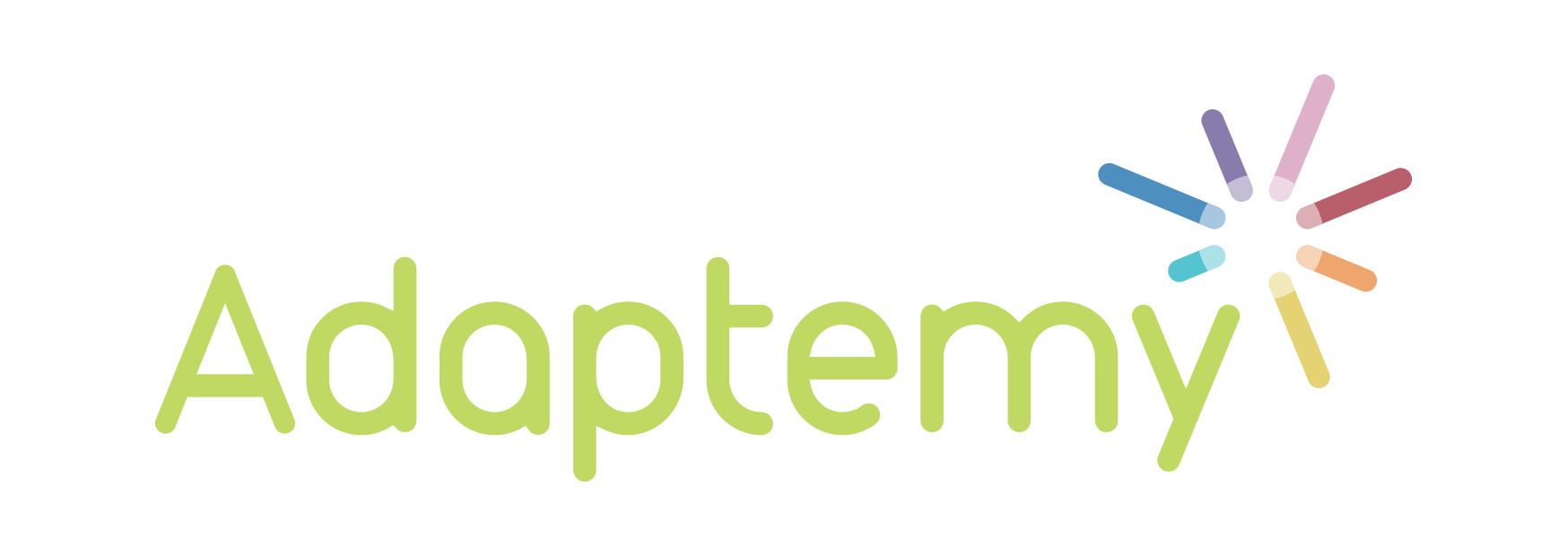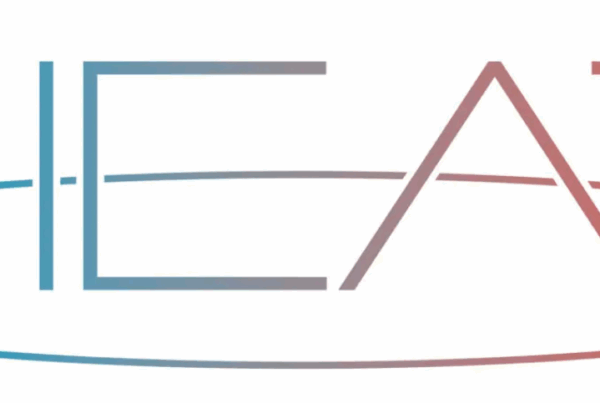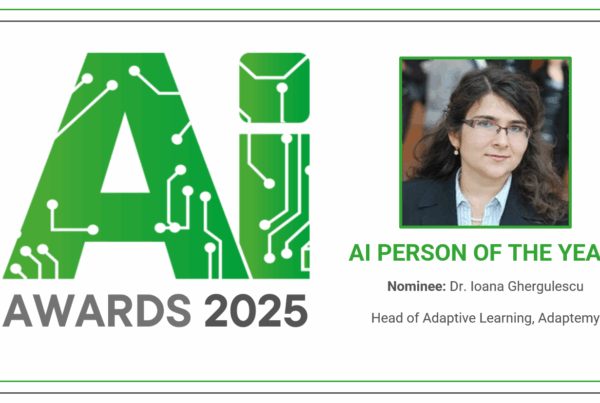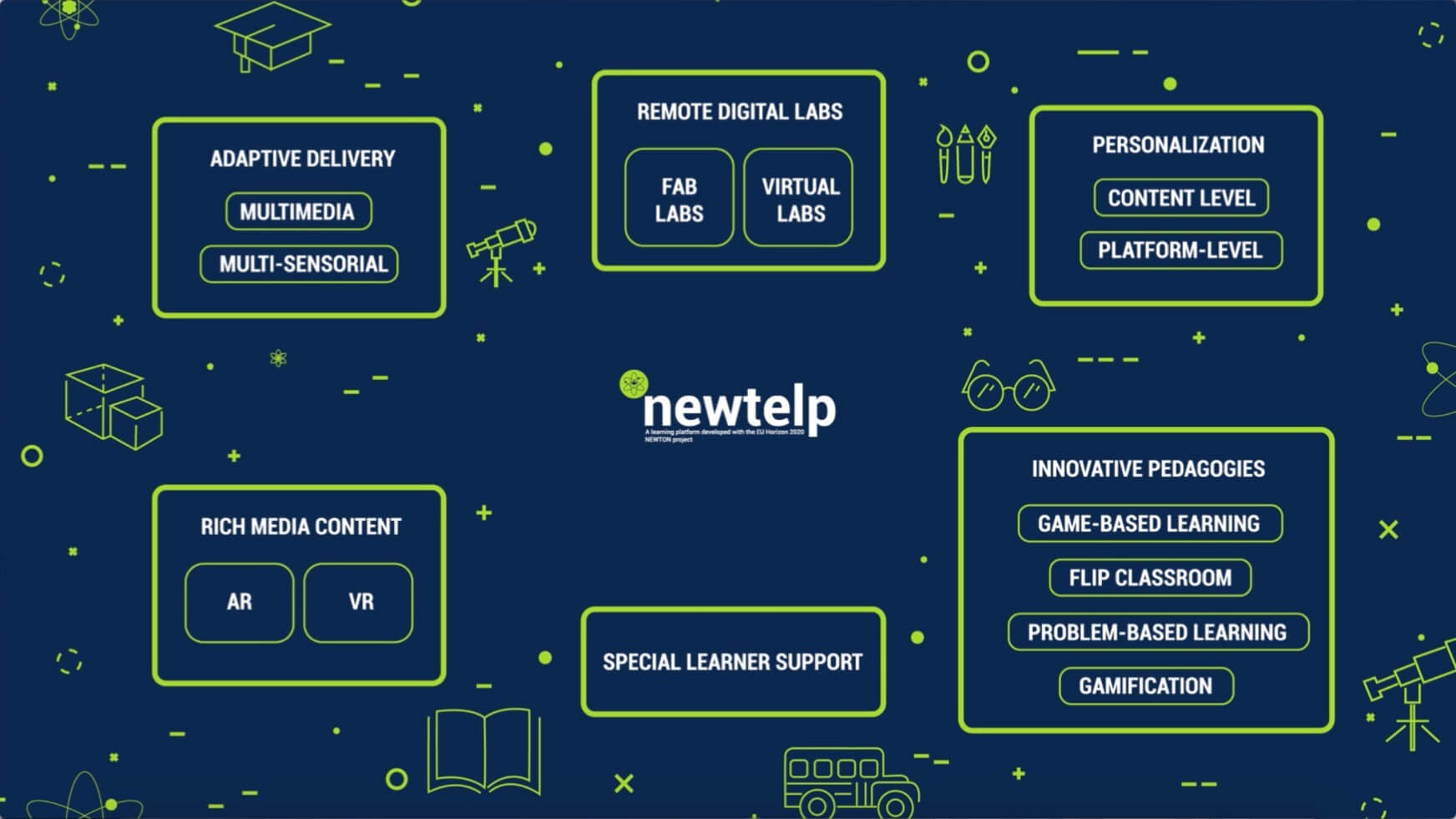
Here at Adaptemy, we are passionate about researching and developing innovative and effective technology enhanced learning.
Horizon 2020 NEWTON was a large-scale innovation action project where we worked together with 13 partners from 7 countries. The NEWTON Project focused on employing novel technologies in order to enhance the learning experience, improve the learning process and increase the learning outcomes.
The NEWTON Project innovative technologies include:
- virtual labs
- fabrication labs
- personalisation
- special learner support
- augmented and virtual reality (AR/VR)
- adaptive multimedia and multiple sensorial media content delivery
These technologies integrate different innovative pedagogies such as:
- self-directed learning
- game-based learning
- flipped classroom
- problem-based learning
- gamification and game-based learning.
The NEWTON project also build an innovative eLearning Management System, NEWTELP (NEWTON Technology Enhanced Learning Platform). NEWTELP links all stakeholders in education, enables content reuse, supports the generation of new content, increases content exchange in diverse forms, develops and disseminates new teaching scenarios, and encourages new innovative businesses.
NEWTON platform and the underlying technologies were evaluated through European-wide, real-life educational pilots in order to assess their impact and effectiveness in terms of user satisfaction, learner experience and learning outcomes.
Innovative Interactive Personalised Virtual Labs
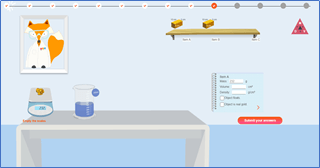 Virtual labs enable inquiry-based learning where students can implement their own experiments using virtual objects and apparatus. The interactive personalised virtual labs for secondary level students include various levels of personalisation: learning loop-based personalisation, feedback-based personalisation, innovative pedagogies-based personalisation (i.e., inquiry-based learning, learning in flow, self-directed learning), gamification-based personalisation, and special education needs-based personalisation (i.e., sign language translation for hearing impaired students). The interactive personalised virtual labs improve users’ Quality of Experience, learning outcomes, learner motivation and learner satisfaction.
Virtual labs enable inquiry-based learning where students can implement their own experiments using virtual objects and apparatus. The interactive personalised virtual labs for secondary level students include various levels of personalisation: learning loop-based personalisation, feedback-based personalisation, innovative pedagogies-based personalisation (i.e., inquiry-based learning, learning in flow, self-directed learning), gamification-based personalisation, and special education needs-based personalisation (i.e., sign language translation for hearing impaired students). The interactive personalised virtual labs improve users’ Quality of Experience, learning outcomes, learner motivation and learner satisfaction.
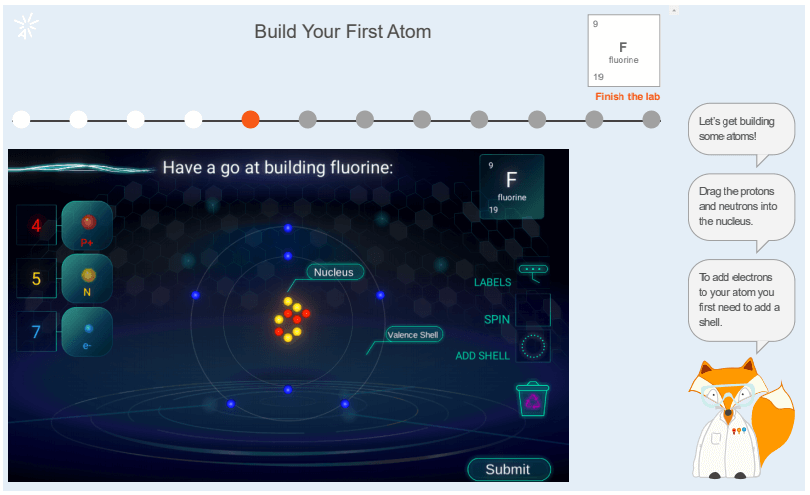
Fab Labs
Fab labs bring the possibility for students to demonstrate the theoretical concepts through the fabrication of real prototypes, using a hands-on approach.
NEWTON fabrication labs utilise both in-situ and remote access to digital fabrication 3D Printing facilities, including for students with special educational needs.
They enable students to develop problem solving and collaborative skills, and bring motivation into activity designs.
Personalisation
The novelty aspect of the NEWTON Learner Model is that along with demographic and pedagogical characteristics, the model also includes special needs, as well as affective and multisensorial characteristics in order to construct a more realistic learner model.
NEWTON integrates personalisation at both content and platform level. The personalisation at platform level focuses on recommending learning content/resources based on learner characteristics described in the Learner Model. The role of personalisation is to provide the most suitable version of content that best matches the learner profile specified in the Learner Model. The most suitable content version is determined based on the description of the content item, the user profile and best-matching algorithm. Furthermore, personalisation is achieved through additional remedial content as well, when low performers will get access to additional remedial content.
Content level personalisation can be found in several NEWTON virtual labs and game-based learning resources by having personalised learning loops and feedback inside standalone contents such as virtual labs or educational games.
Special learner support
NEWTON delivers STEM content to students with special education needs to support their cognitive development and communication ability.
NEWTON Technology Enhanced Learning adapt the STEM content and delivery method to each type of educational needs and individual traits.
Augmented reality and virtual reality (AR/VR)
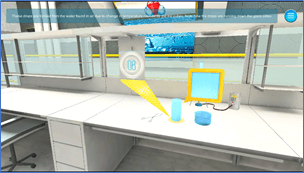 By making use of AR and VR, NEWTON project aimed at creating significant enhancement to users’ cognitive perception of the real world and situational awareness. The technology is suitable for both indoor and outdoor environments, as it is appropriate for mobile or fixed learning settings.
By making use of AR and VR, NEWTON project aimed at creating significant enhancement to users’ cognitive perception of the real world and situational awareness. The technology is suitable for both indoor and outdoor environments, as it is appropriate for mobile or fixed learning settings.
VR and avatars are used to enhance learning and teaching processes, especially beneficial for students with special educational needs offering them special learner support and the possibility to conduct augmented interactive STEM experiments.
Adaptive multimedia and multiple sensorial media (mulsemedia) content delivery
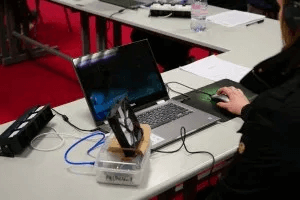 NEWTON aims to make the learning process richer and more memorable with the use of multimedia and multiple sensorial media content delivery. NEWTON has explored the delivery of innovative mulsemedia content such as olfactory, tactile and thermoreceptive sensations and how these can be employed for the benefit of learners in order to facilitate memory, perceptual and implicit learning and training outcomes. Furthermore, the content delivery is done in an innovative manner so that the students will enjoy a learning experience adapted to their context (e.g., network conditions).
NEWTON aims to make the learning process richer and more memorable with the use of multimedia and multiple sensorial media content delivery. NEWTON has explored the delivery of innovative mulsemedia content such as olfactory, tactile and thermoreceptive sensations and how these can be employed for the benefit of learners in order to facilitate memory, perceptual and implicit learning and training outcomes. Furthermore, the content delivery is done in an innovative manner so that the students will enjoy a learning experience adapted to their context (e.g., network conditions).
Platform
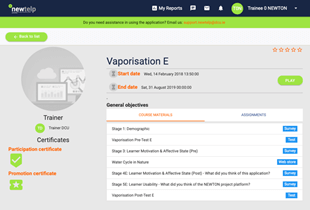 A solid, flexible and scalable learning management system was developed as part of the project – NEWTON Technology Enhanced Learning Platform (NEWTELP). It enables teachers to supplement the traditional teaching process, motivating students and combining various effective teaching methods.
A solid, flexible and scalable learning management system was developed as part of the project – NEWTON Technology Enhanced Learning Platform (NEWTELP). It enables teachers to supplement the traditional teaching process, motivating students and combining various effective teaching methods.
The platform links all stakeholders in education, enables content reuse, supports the generation of new content, increases content exchange in diverse forms, develops and disseminates new teaching scenarios, and encourages new innovative businesses.
